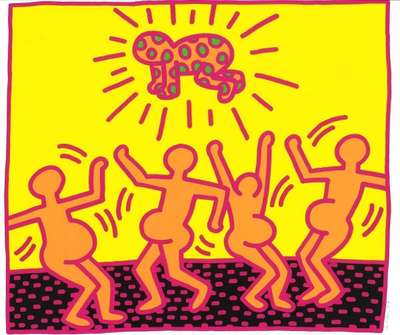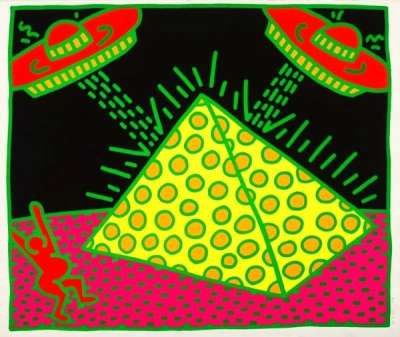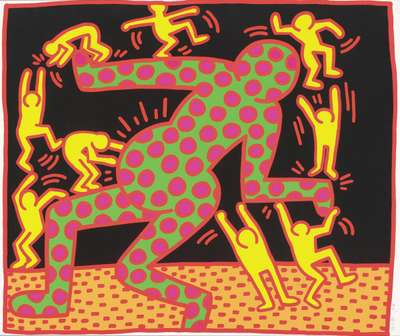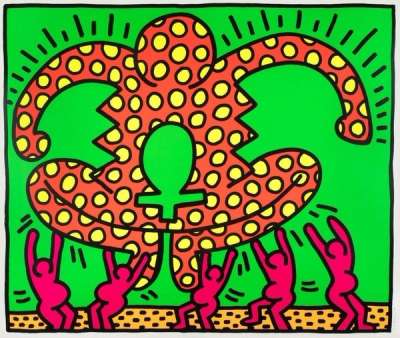
Fertility 4

Fertility 4
Signed Print
Keith Haring
£45,000-£70,000Value Indicator
$90,000-$150,000 Value Indicator
$80,000-$130,000 Value Indicator
¥440,000-¥680,000 Value Indicator
€50,000-€80,000 Value Indicator
$460,000-$720,000 Value Indicator
¥8,510,000-¥13,240,000 Value Indicator
$60,000-$90,000 Value Indicator
AAGR (5 years) This estimate blends recent public auction records with our own private sale data and network demand.
There aren't enough data points on this work for a comprehensive result. Please speak to a specialist by making an enquiry.
Medium: Screenprint
Edition size: 100
Year: 1983
Size: H 107cm x W 126cm
Signed: Yes
Format: Signed Print
Track this artwork in realtime
Watch artwork, manage valuations, track your portfolio and return against your collection
Track auction value trend
Auction Results
| Auction Date | Auction House | Location | Hammer Price | Return to Seller | Buyer Paid |
|---|---|---|---|---|---|
| September 2022 | Wright | United States | |||
| March 2022 | Sotheby's New York | United States | |||
| March 2022 | Sotheby's New York | United States | |||
| June 2021 | Bonhams New Bond Street | United Kingdom | |||
| May 2021 | Uppsala Auktionskammare | Sweden | |||
| March 2019 | Christie's London | United Kingdom | |||
| October 2017 | Christie's New York | United States |
Meaning & Analysis
Fertility 4 is a signed screen print from 1983 with a limited edition of 100 from Keith Haring’s Fertility Suite series. The series simultaneously looks to the horrors of pregnant women living with HIV/AIDS in Sub-Saharan Africa, and the hope and innocence children inspire in the world. As with other prints in the series, Haring uses a clear, positive visual language to communicate complex and troubling subject matter.
Fertility 4 shows a bright pink figure covered in yellow dashes squatting in the centre of the work, with its arms around two pregnant figures shown in black and outlined in neon yellow. Due to the dashes on the figure’s body the central figure represents HIV/AIDS in this print and has a threatening presence. However, Haring includes an ankh cross, the Egyptian hieroglyphic for ‘life’ at the centre of the figure's stomach, thus presenting the paradox between the celebration of life and living with HIV/AIDS.
Though trapped by the grasp of the menacing central figure, the two pregnant figures can be seen high-fiving and dancing, emphasised by Haring’s use of bold rounded lines to cultivate a sense of energy and movement. The resulting image celebrates the fertility of the pregnant figures, underscored by the presence of Haring’s radiant baby symbol in the bottom right corner, as well as a caution to the perils of HIV/AIDS and how it affected pregnant women and their children in certain parts of Africa throughout the 1980s.




